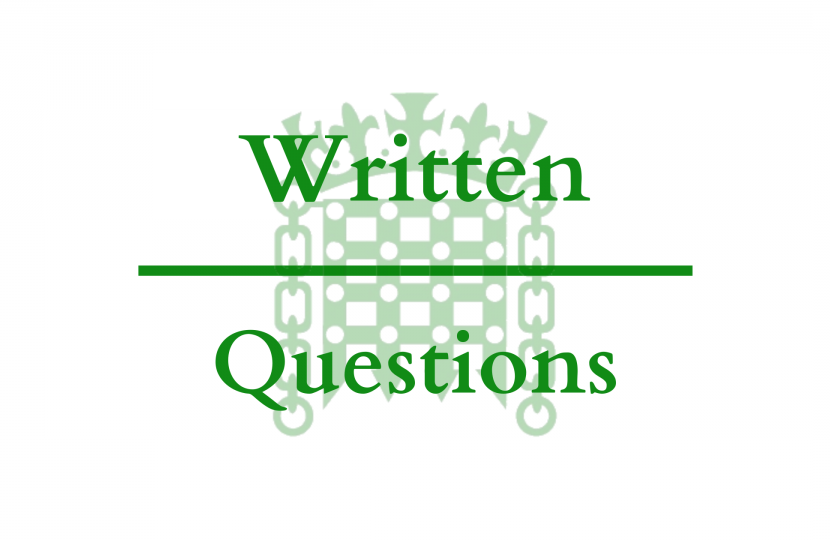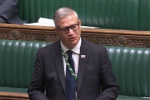
Q: (Andrew Rosindell) To ask the Secretary of State for Digital, Culture, Media and Sport, what recent discussions he has had with bookmakers on funding for racing greyhounds.
A: (Nigel Huddleston, Parliamentary Under-Secretary of State for Digital, Culture, Media and Sport) The British Greyhound Racing Fund (BGRF) collects a voluntary levy from bookmakers and uses the funds for greyhound welfare and sports integrity, and to a lesser extent the development and promotion of the sport.
Government officials recently met representatives of the Betting and Gaming Council (BGC) and the British Greyhound Racing Fund to discuss funding for greyhound racing with a view to encouraging bookmakers that have yet to sign up to the voluntary Memorandum of Understanding to do so.
Government will continue to work with the betting and greyhound industries to make sure that greyhound welfare is safeguarded and remains at the heart of the sport.
Q: (Andrew Rosindell) To ask the Secretary of State for Housing, Communities and Local Government, whether he has made an assessment of the potential merits of extending the deadline to submit a full-cost funding application to the Building Safety Fund in response to the disruption caused by the new national covid-19 lockdown restrictions in operation since 5 November 2020.
A: (Christopher Pincher, Minister of State, Housing, Communities and Local Government) The timelines for the Building Fund, set out in the prospectus, are intended to incentivise building owners to demonstrate pace of progression with their remediation plans for unsafe buildings. We will keep timelines under review as we continue through the application process. In addition to remediation funding, we are also providing technical and pre-tender support for applicants.
Q: (Andrew Rosindell) To ask the Secretary of State for Business, Energy and Industrial Strategy, what assessment he has made of the economic effect of the new national covid-19 lockdown restrictions in place from 5 November 2020 on the hair and beauty industry; and if he will make an assessment of the potential merits of introducing a bespoke package of fiscal support for that industry.
A: (Paul Scully, Parliamentary Under-Secretary, Department for Business, Energy and Industrial Strategy) We recognise businesses and jobs will be significantly impacted by Covid during the winter. That is why my Rt. Hon. Friend Mr Chancellor of the Exchequer announced that, from 1 November, the Job Support Scheme is being expanded to provide temporary support to businesses whose premises have been legally required to close as a direct result of Covid. This will help businesses by supporting the wage costs of employees and protecting jobs.
We’ve put in place an unprecedented package of support to support impacted businesses, including over £11billion already been paid out through the Small Business Grants Fund and Retail, Hospitality and Leisure Business Grants Fund to over 897,000 businesses across the country, with a further £617 million available to councils to use at their discretion to support small businesses which are not eligible for the other grant schemes.
Q: (Andrew Rosindell) To ask the Secretary of State for Transport, with reference to the announcement of an 11 month extension for expired driving licences, what assessment the Government has made of the potential merits of extending the period by 11 months that non-EU driving licence holders can legally drive in the UK.
A: (Rachel Maclean, Parliamentary Under-Secretary Department for Transport) Holders of driving licences issued outside of the European Union who become resident in Great Britain can drive small vehicles (motorcars and motorcycles) for up to one year from the date they become resident.
To continue driving after this period the driver must either exchange their licence, if it was issued by a country which has been designated for licence exchange purposes, or apply for a provisional driving licence and pass both a theory and practical driving test. There are no current plans to review these arrangements.
Q: (Andrew Rosindell) To ask the Chancellor of the Exchequer, what steps he is taking to ensure that the future UK-EU trade agreement sets effective rules of origin requirements for products where there is no domestic manufacturing in order to support UK businesses and consumers who purchase imported goods.
A: (Jesse Norman, Financial Secretary to the Treasury) The Government’s intention is that any UK-EU trade agreement will include clear, simple, and trade facilitating Rules of Origin which will support the needs of businesses and consumers across the UK, and it has been working closely with UK industry throughout the negotiation process. The Government continues to seek solutions that fully respect UK sovereignty, and provide for mutually beneficial outcomes across all chapters and areas, including on rules of origin.
In addition, the UK’s Global Tariff Regime has been developed, in part, in order to support businesses and UK consumers who purchase imported goods. Tariffs have been removed on a number of products that are not produced in the UK, or which the UK does not produce much of, in order to reduce cost pressures for UK households and businesses. Regardless of whether the UK agrees a trade agreement with the EU, this tariff liberalisation will mean those products will still be able to enter the UK at zero tariffs, supporting UK businesses and consumers.
Q: (Andrew Rosindell) To ask the Secretary of State for Health and Social Care, whether he has made an assessment of the potential merits of (a) moving high risk and vulnerable adults under the age of 65 higher up the list of priority groups for covid-19 vaccination and (b) undertaking individual assessments for people who are extremely vulnerable to determine whether they could benefit from early vaccination.
A: (Rachel Maclean, Parliamentary Under-Secretary, Department for Transport) The Joint Committee on Vaccination and Immunisation (JCVI) are the independent experts who provide advice to Government on which vaccine(s) the UK should use, and which groups within the population to prioritise. The JCVI and the JCVI sub-committee are currently reviewing evidence on clinical risk factors associated with serious disease and mortality from COVID-19. Following a review of the evidence, the Committee will develop advice on risk groups for any future COVID-19 vaccination programme.




